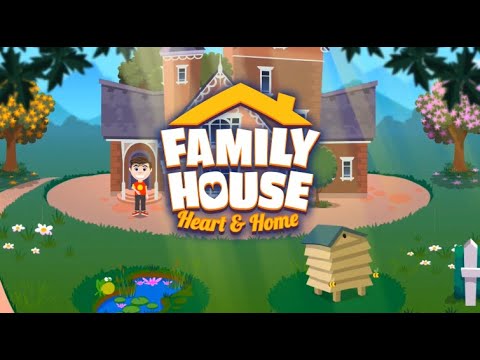The latest game in the series, the Sims 4, achieved outstanding sales even though it got mixed reviews. The entry has over 36 million sales worldwide and up to $1 in revenue due to its massive expansion packs. Meanwhile, The Sims 3 elements (like adding a pool) were missing in the sequel. Over time, Maxis added back those features either as free patches or paid post-launch content.Be that as it may, we want the good of the Sims, with none of the bad. Let’s see what we can find on other games like The Sims.
Selecting games like The Sims
We decided to look at the elements of The Sims 4, as it is today, to identify similar alternatives.
Social simulation: The Sims 4 is a strategic social sim, just like previous games in the series. You create a character, engage in an interactive environment.Customizable character: the game starts with a character screen creation. In The Sims 4, there’s a wide menu full of options to manipulate a plethora of aspects of your Sim’s appearance, personality, and preferences. Live stages: Sims has seven life stages (from baby to elder). You can create your Sim at any location except for the first baby (you can start playing as a toddler, though). Maps: The Sims 4 has various maps (Worlds) to create and customize your character. These are individual neighborhoods, and you can visit other areas at any time. Open-ended gameplay: There’s no set goal and no focus in The Sims (except for so,e DLCs). Simply, you micro-manage almost every aspect of your Sim’s virtual life. Likewise, you become responsible for your character’s actions, desires, and needs. Families and friends: players can create their own families by romancing other Sims in the neighborhood. They can also pñlay with pre-existing Sims families or create their own characters. In-game work: Sims make “Simoleons” by getting a job, selling crafted items, or selling garden products. Therefore, you can pursue a career, develop skills, and grow in your profession.Build mode: The Sims series build mode is its most popular aspect. It’s the interface where you can buy building materials, furniture, and decor to build and customize your household. Players can unlock additional items as they progress. Emotions: The Sims 4 introduced an Emotions system. Your Sim has a range of emotions, and each emotion has three stages of strength. Multiple factors in virtual life may influence your Sim’s emotional state. Art style: the Sims series, and The Sims 4, have friendly art styles. By that, I mean the visuals are cartoonish, family friendly, and don’t require much PC power.Online feature: The Gallery is an online area where players can exchange Sims, households, families, rooms, and buildings with other players.
The games like The Sims we’re looking for have a mix of these elements, plus their own core features. Overall, we’re looking for social sims emphasizing strategy, character customization, and micro-management.
Best Games Like The Sims
Animal Crossing: New Horizon
Animal Crossing: New Horizon is the ultimate social simulator game. The 2020 Nintendo IP became an all-time worldwide best-seller, but it’s only available on Nintendo Switch.You play as a foreigner, arriving on an island as a tourist. On the island, though, you’ll find anthropomorphic creatures looking for your help. Soon, you help the locals develop the island with many social and building features. For example, you can build and customize a farm, decorate your house, fish, search for treasures, manage shops, dig up fossils, search for messages in bottles, talk to NPCs, gather resources in the forests, and much more.The gameplay loop is about befriending other NPCs, developing your own farm, and doing many side activities. On top of that, the game has a comprehensive character customization system, a crafting system, real-time mechanics, and friendly graphics.Lastly, the game has a multiplayer feature, a core element. Up to 8 players can join the same server to build, craft, and journey together. That said, the game also has an open-ended story with no goal other than having wholesome fun.
Stardew Valley
Stardew Valley is one of the most popular social sims available. It has over 20K concurrent players on Steam every day, a massive number for an indie title by a signal designer, Eric Barone.The game uses old-school RPG graphics, relaxing music, and heart-full NPCs to lure the players. You play as a farmer in the countryside on an open-ended main quest where you can choose to help develop the neighboring town.As you grow your farm, you develop skills to make your work easier. Over time, you sell your goods to make money, and with your money, you can buy home decor to build and customize your farm. And if managing the farm becomes too tough, you can invite up to three players to your Valley. Together, you can develop the farm, share resources, share profit, improve the community, and explore the open world.Back in the town, you can form relationships with any character in the Valley. Each character has a unique story and background. On top of that, you can cook, farm, mine, raise animals, visit shops, and fight monsters in caves. And just like The Sims, you can also marry other NPCs to have your own virtual family.
My Time at Portia
Many social sim games revolve around handling a farm. That’s mostly because of games like Stardew Valley, though. Be that as it may, we choose My Time at Portia because of its cutesy designs and hefty social sim features.You play as a new resident in Portia, a cutesy open-world with many side activities to play. You can fish, farm, craft, cook, mine, and much more. Just like the Sims, you can romance someone, get married, have children, customize your looks, and decorate your house.As the new resident, though, you inherit a workshop from your grandparent. This is your workplace, the site you must develop to earn money from all manner of crafts, gadgets, and items you sell.However, the true heart of the game relies on its thriving community. Portia residents are friendly, charming, and capable of romancing or becoming friends with the playable character. But, overall, If you’re looking to make another virtual family, why not Portia?
Second Life
If you’re looking for an immersive social sim, Second Life should be at the peak of your options. It’s an online MMORPG real-life simulation platform. It has been up since 2003, and schools, embassies, and workplaces currently use its virtual worlds for remote reunions.Players create an avatar for free, customize their looks, and live the virtual life as they see fit. Albeit it’s Orwellian and dangerously close to what Facebook intends with their Metaverse ideas. Still, Second Life has a purpose in this world. In particular, during the pandemic, it allows classmates, coworkers, friends, and family members to interact in the same space -a virtual space.In essence, you join a persistent online world and socialize with other players. You can find thousands of virtual experiences and communities other players manage there. You’ll never run out of things to do, people to meet, and places to visit. Running a business and owning property on Second Life is easy and encouraging. Even so, there’re thousands of NPCs filling specific roles globally.Overall, Second Life has ruled the virtual space for over a decade. Nowadays, it has a huge market of items to buy, like virtual fashion and home decor. For better or worse, NFTs are also creeping their way into the game in the shape of land plots and other in-game properties.
Spore
Spore comes from The Sims creators, but it’s a game that fans forgot. That’s a shame, as the title presents a unique idea, a complex system, and a game system that was years ahead of its time. It even has a social feature that allows you to explore other players’ galaxies and share your world with others. This is a simulator as well but deviates significantly from its peers. You play as an alien species, a Spore, and start your gameplay as a cell. The game will present itself as a sandbox with infinite amounts of options from the moment you start. As for the options, you need to evolve through five stages. Evolving requires going through various in-game challenges.In essence, you face other species for the gene they offer. You can beat them in combat to eat them or use different tools to put them on your side. If things go your way, you will thrive on the planet and evolve by taking other species’ “parts” and choosing genetic options. If you love to manage the creation and see it grow, it’s the ideal experience.That said, you don’t play with a human, but you do craft your experience. From mindless killer beats to super-smart intergalactic travelers, you can make anything you want. The world you play in is massive, open-world, and capable of accepting anything you choose. Ultimately, you can craft a macro civilization with your species, thus managing more than a single cell.
Two Point Hospital
Being a doctor is one of the best careers in The Sims 4. That’s because you can control your Sim as he works, unlike other careers. So, you can treat your patients. If you liked that gameplay, Two Point Hospital would feel very similar. This game is a hospital simulator. It lets you design and build a hospital from scratch with a comprehensive set of mechanics. It’s not the real world, though, so expect a lot of weird diseases like “Cubism,” each requiring special treatments and machines. After you build a functional hospital, you have to micromanage your staff. It will improve the hospital’s reputation, but you need to ensure everyone runs properly. Moreover, as you optimize your hospital, you’ll be able to earn more cash to improve your hospital.Overall, Two Point Hospital has a unique mix of humor and a witty take on running a building within the healthcare system. Lastly, as a management simulator, you can expand, improve, decorate, and customize the hospital endlessly.
The Sims FreePlay
This is the free-to-play version of the fan-favorite simulation game. If you can’t get your eyes off The Sims 4, but you don’t have time to sit at home and play, there’s an option: The Sims FreePlay.This is a toned-down, free-to-play version for mobile devices and tablets. It has a similar graphical quality, a similar color palette, and similñar mechanics, though. For example, the character creation screen is hefty, and the build mode is superb.However, as a free mobile game (from EA), playing the title may become an exercise of patience. It has no shame in asking for your money to complete its tasks and speed up your experience. However, this doesn’t mean there’s nothing to do: you can still do almost anything you would on the PC title. So, most of the mechanics you see on the core title are there, from an emotional system to a career, families, romance, and needs. That’s why we selected FreePlay because it’s a nice, on-the-go solution you can play with. Moreover, it allows you to explore other areas in the neighborhood for side activities, like going to the park, visiting shops, and going on dates.
Fallout Shelter
You don’t need to follow the Fallout series to enjoy its social sim spin-off. Sadly, pay-or-wait mechanics tarnish the core gameplay… it’s “free,” after all. Still, it effectively adds light RPG mechanics, shooting, simulation, and other systems.Still, it’s a fun and addictive game for hours, even if you don’t play a single dime. You’re an “Overseer,” meaning you’re in charge of an underground shelter for survivors, a Vault. As the person in charge, you manage the resources, rooms, and citizens.In essence, it has two core gameplay loops. You choose which rooms to build in the shelter and tell citizens what to do. Rooms include sleeping quarters, power generators, food generators, water generators, science labs, med labs, arsenals, training areas, and more. Each room produces currencies (caps) and levels up. Then, you tell the vault-dwellers where to work, and according to their stats (which you can develop), they’ll deliver better results.The second gameplay loop is exploring the wilds. If you send your citizens outside the vault, they explore the wild and deliver results with a text-based menu. However, if they find bases, you get to play on 2D turn-based shooting segments with a single explorer or a squad of explorers.
Cities: Skylines
Skylines is a city-building game. Instead of micro-managing individual lives, you macro-manage the lives of an entire population.In essence, you build a city and then handle its many systems. That includes urban planning, roads, taxes, public services, transports, jobs, industries, and more. Your job is to balance the many elements within a city.You’re, in other words, the major. As the major, you manage the city’s budget. Then, you use the city’s resources to build anything you want. Naturally, though, you unlock new buildings as you progress the game. Also, you need to keep an eye on stats like pollution, health, employment, and crime. Overall, if you like to manage a house and a family on The Sims, I bet you’ll love overlooking a city. Bear in mind, though, that you’ll also have to deal with outside issues like natural disasters.
SimCity 4
SimCity is always a companion title for The Sims. The Sims is like zooming-in the experience; SimCity is like zooming out the game to get the full picture of Maxim’s franchise. Nearly a decade has passed since the last game debuted. Still, it’s a classic title, and an experience social sim and RTS fans should play. There’s currently a SimCity 4 Deluxe version on Steam. Unfortunately, players need some workaround to run the game on newer systems. That said, SimCity 4 is perhaps the greatest game in the city sim genre. The focus is urban planning. You play as the mayor and develop the city slowly but surely. The ultimate goal is to create a place where all citizens are happy. When citizens are not satisfied, they move to another town. Naturally, as you develop your city, you manage many systems and stats. The game focuses on realistic mechanics like taxes, revenue, loss, imports, exports, and more.
Virtual Families 2
Virtual Families 2 debuted as a mobile-only app in 2012, although it became available for PC in 2018. The sequel is similar to the original game; the developer made both entries to look and feel like The Sims. So, down to the graphics, the mechanics, and the perspective, Virtual Families 2 looks like a Sims spin-off.The second installment is about adopting an adult with a set of characteristics. Players then put the adult in a house and live its virtual life, from career to family. We left it at the last places on our list because of its age -it’s a decades-old title. The systems are easier and less comprehensive than The Sims, so it’s less time-consuming. However, your characters still need some babysitting. Like the Sims, your characters cannot fulfill their desires, needs, and wants independently. Lastly, Virtual Families 2 puts heavy emphasis on building a house. You can renovate your hose, buy home decor, furniture, and expand the building through the game’s build mode. You can also bond with your family, adopt a pet, and purchase new items outside the build mode.
Family House: Heart & Home
Family House is a mobile-only social simulator. In essence, it’s like playing dollhouse on your phone.The game makes you create a house you can improve over time. Then, you add family members and manage key aspects of their life. Additionally, you can grow and produce your food, buy clothes, design the interior, and pay rent. It’s not about a single “Sim,” though. Instead, the game goes across several family generations. Therefore, younger members take residents in the house you build. The result is managing a virtual family full of charm and cutesy graphics. Overall, it’s a simpler, free-to-play, and family-friendly game. The developers also promise a social feature to allow you to visit your friend’s houses for rewards and interaction. Additionally, they’ll add more rooms to offer more activities.
Bitlife Life Simulator
BitLife: Life Simulator is a mobile-only simulator game. It’s the option for those who don’t have a capable PC or console or those looking for a smartphone game. In essence, it’s a text-based life simulator. The game presents various choices during different life stages. Depending on your preferences leads to different paths. In other words, the game properly revolvers according to player decisions. Then, you monitor your character stats as you move from one life stage to another. Evolving as a character includes playing various mini-games and facing the consequences of your choices. Overall, you can make a model citizen and live a good life from a baby until you’re an elder. Or you can live a horrible life, descent into crime, start riots, and cheat on your partner. In summary, it’s a fun social sim revolving around micromanaging your virtual life through a text-based interface.













